Sure, everyone’s heard of Columbus, Ohio – but Indiana? Never knew it existed. But it came up on my radar for the wonderful Miller House, so we wound up spending a night there. It turned out to be an architecture and art hot spot, with much more to it than what we managed to see. We also learned that the Millers had a lot of impact on this small city.
Dale Chihuly!
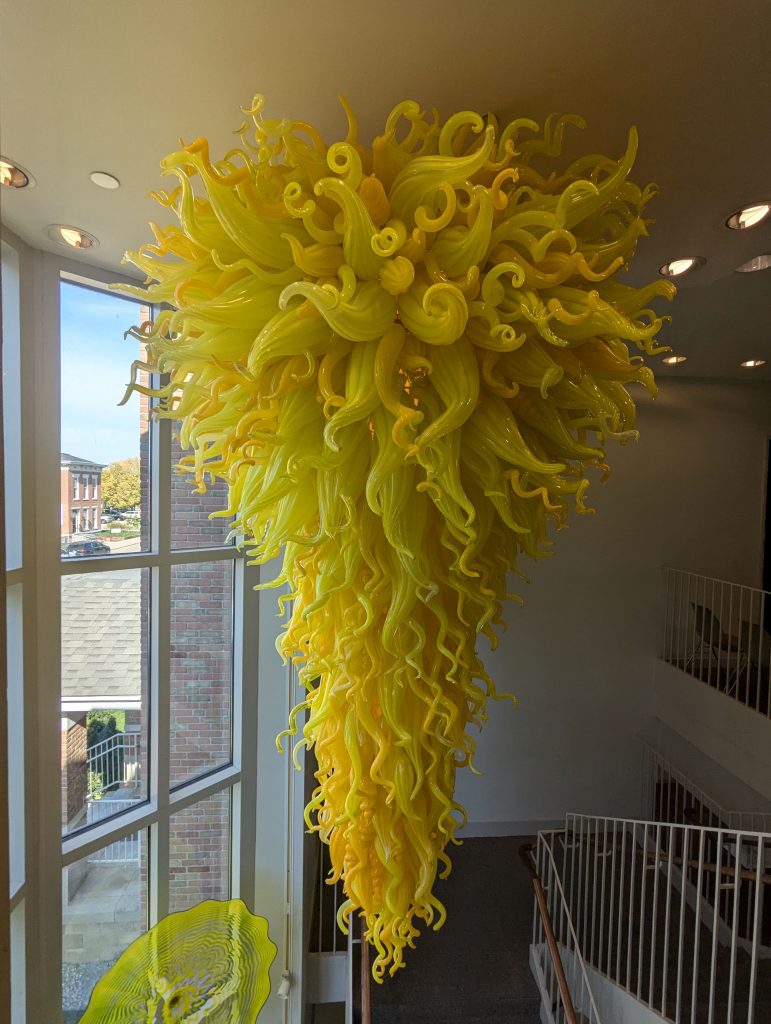
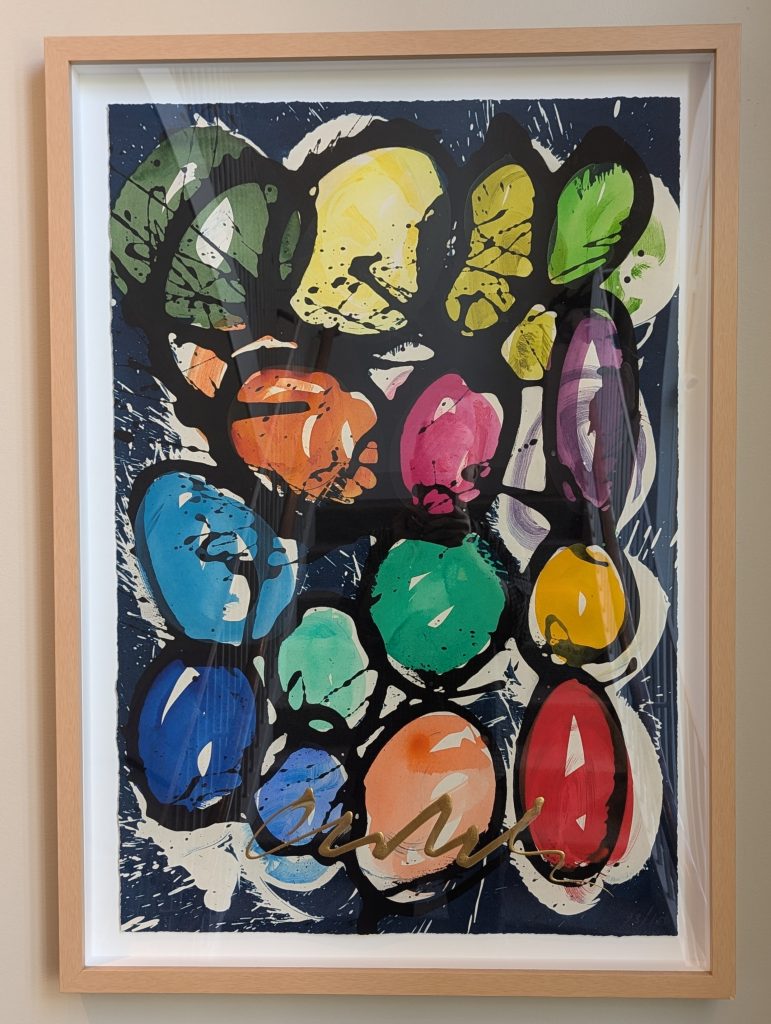
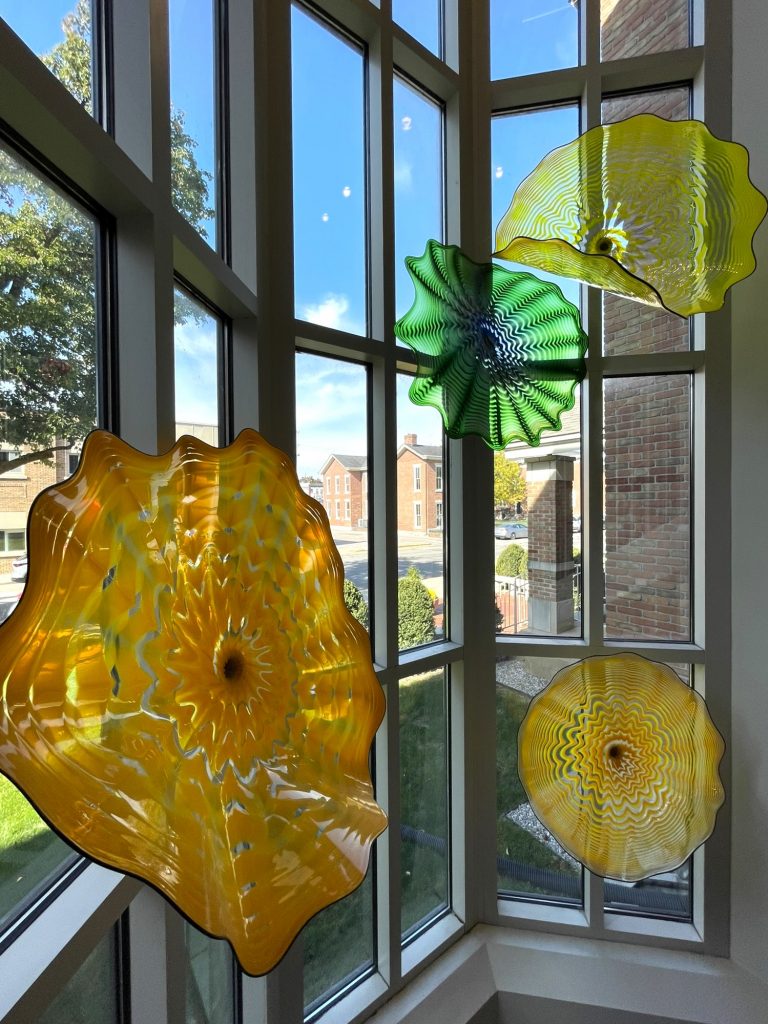
Of course I was delighted to discover some Dale Chihuly pieces in town! The Persians and Yellow Neon Chandelier were a gift from J. Irwin and Xenia Miller. Sun Garden Panels in Suspended Circle was commissioned for the space it is in, the Johnson Family Atrium at the Columbus Learning Center, and is a gift from the Richard Johnson Family.
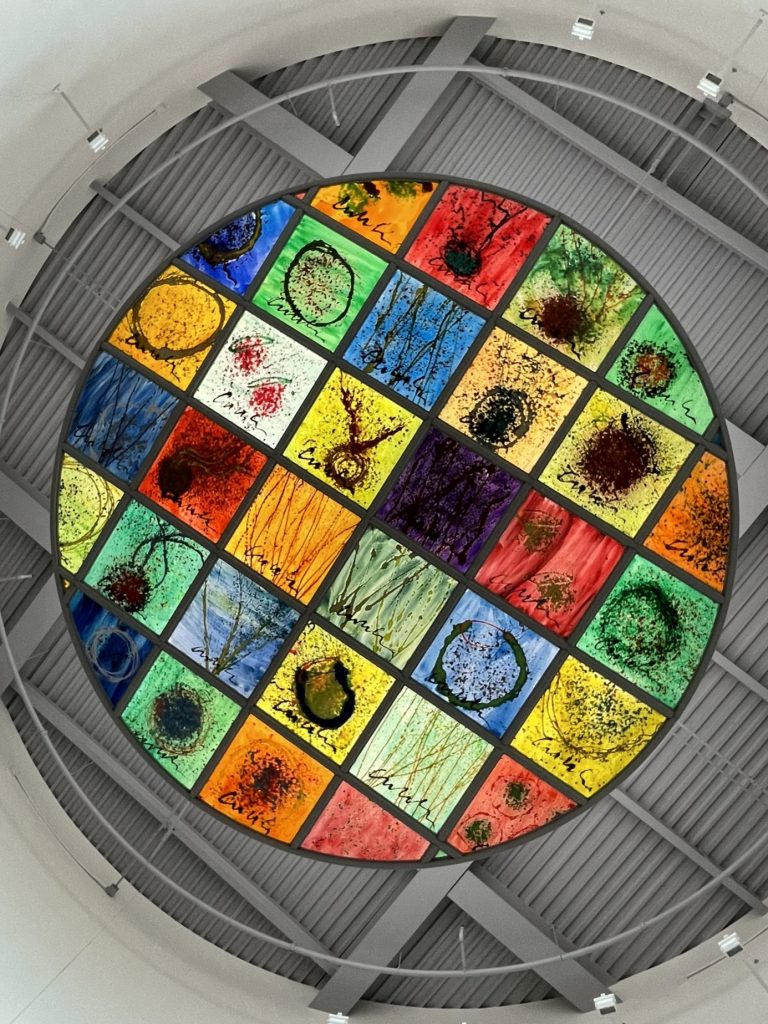
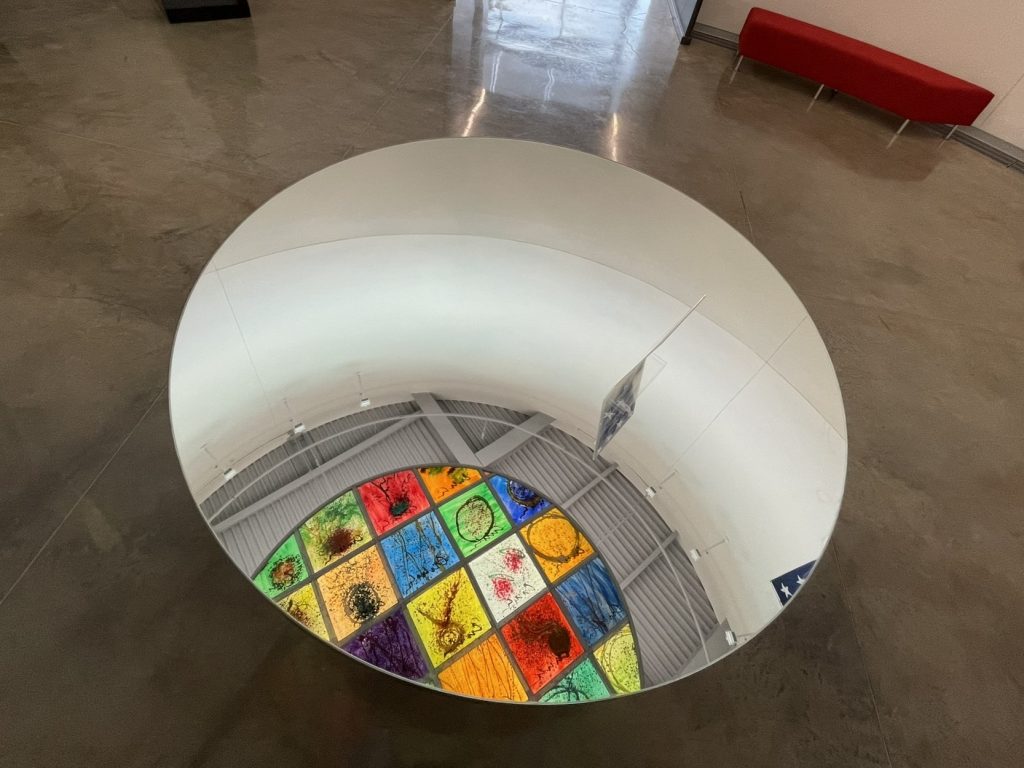
Saarinen Churches
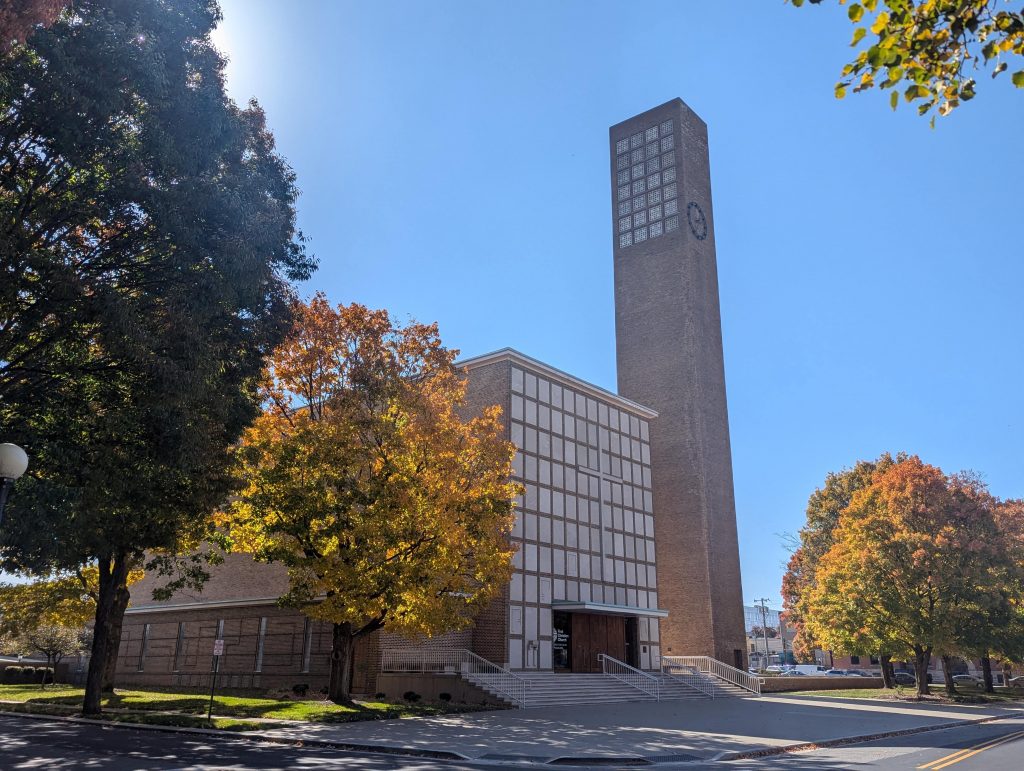
The Miller family had a hand in both the Saarinen churches in town. The wife of the reverend of the First Christian Church was the mother of J. Irwin Miller, and he had been taking an architectural appreciation course at Yale University. He recommended a modern church, which led them to Eliel Saarinen.
Later, when the North Christian Church was in consideration, the family helped raise the funds for the land purchase. J. Irwin was on the building committee, and though Eliel’s son Eero had built Miller’s house a decade before, he didn’t want to influence the committee.
We interviewed about six well-known architects. They all came in with their slides [and talked about their work]. Eero just brought a notebook. He looked at us and said, “What do you want? What do you want it to be? Don’t tell me what you want it to look like, but what you want it to be like.” They decided to hire him as soon as he left
J. Irwin Miller, on hiring Eero Saarinen for the North Christian Church.
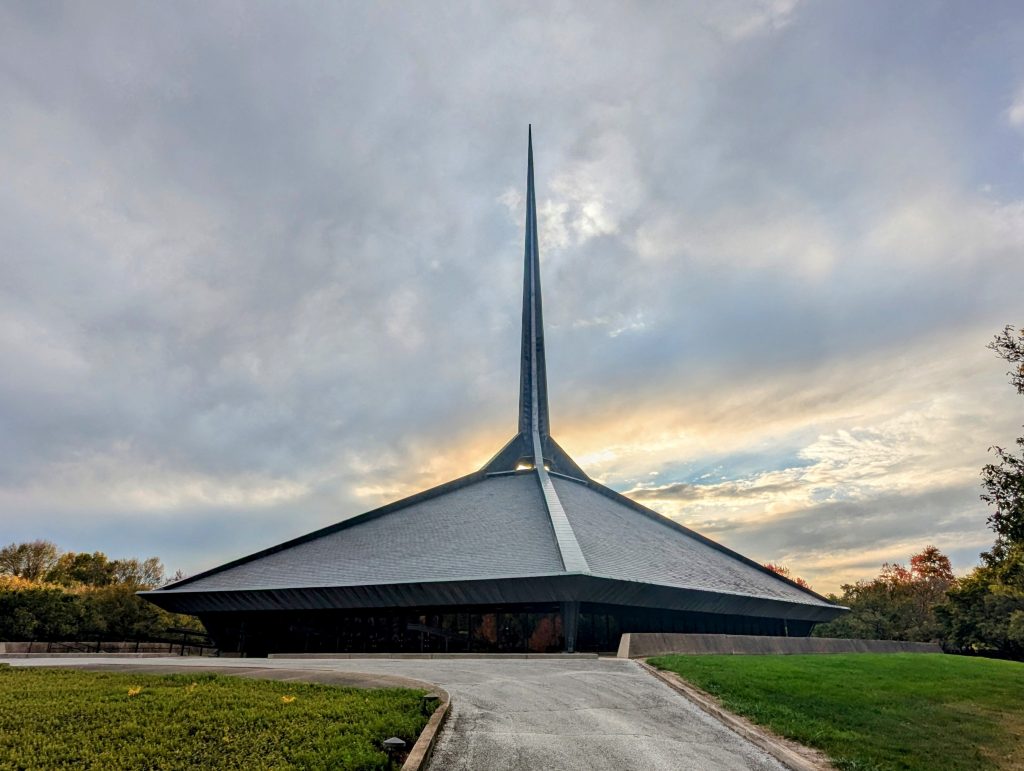
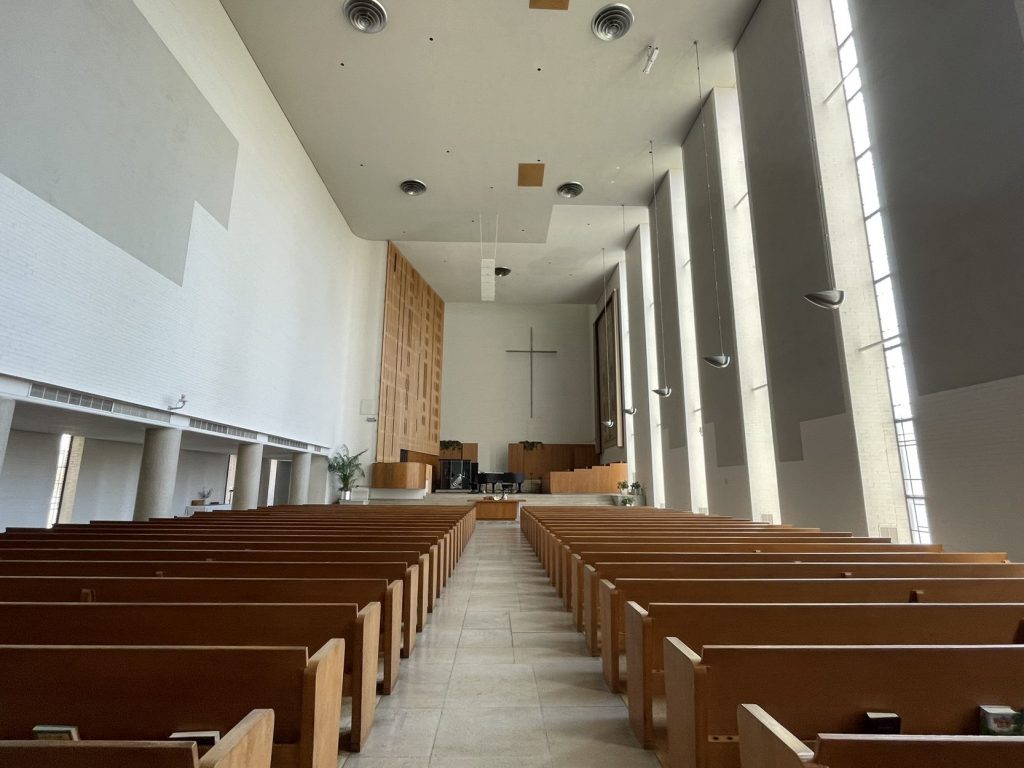
The First Christian Church, completed in 1942, was the first contemporary building in Columbus, and one of the first contemporary churches in the United States. The campanile is 166-feet-high. It overall looks brutal from today’s standpoint, if I do say so myself, and the inside was no better – very stark.
The North Christian Church was completed in 1964. Its central metal spire is 192 feet high, and contains an oculus at the base that lets light inside. It symbolizes reaching upwards to God. Wikipedia says it is one of the most copied buildings from the mid-twentieth century! It is the last building Saarinen designed before his death, and he considered it one of his greatest achievements.
Unfortunately North Christian Church is now sitting unused. The congregation found its membership dwindling and upkeep costs increasing, leading to its closure. We were only able to look through some windows, but due to its design, we were not able to see very much of the interior at all. Earlier this year the Bartholomew County Library Board accepted the building as a gift from the congregation, so hopefully it will find its doors open once again soon.
Other Notable Buildings
The Irwin Conference Center was designed as a bank by Eero Saarinen in 1954. Perhaps by this point it is no surprise that J. Irwin Miller was chairman of the board of directors for the bank, Irwin Union Bank and Trust. The goal was a modern bank that was not a shock to its more historic neighbors, so it sits low to the ground in a grove of trees, but is light and open to the community.
Other famous names attached to this project: Dan Kiley as the landscape architect (he also did the landscaping for the Miller House), and furniture designer Charles Eames.
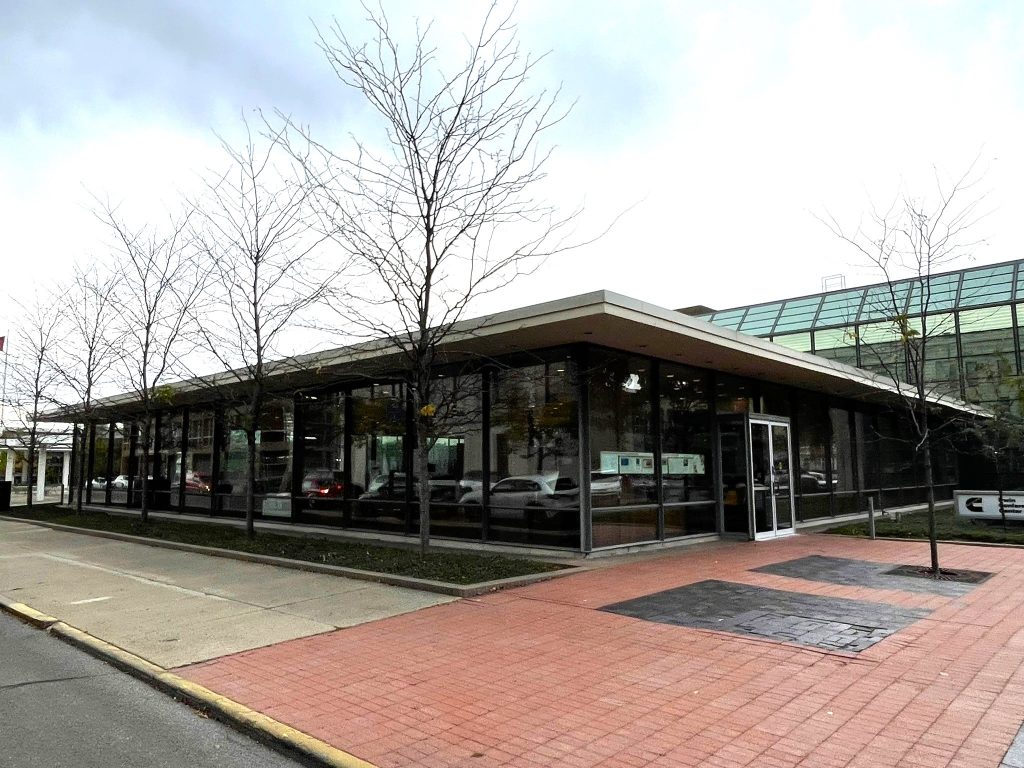
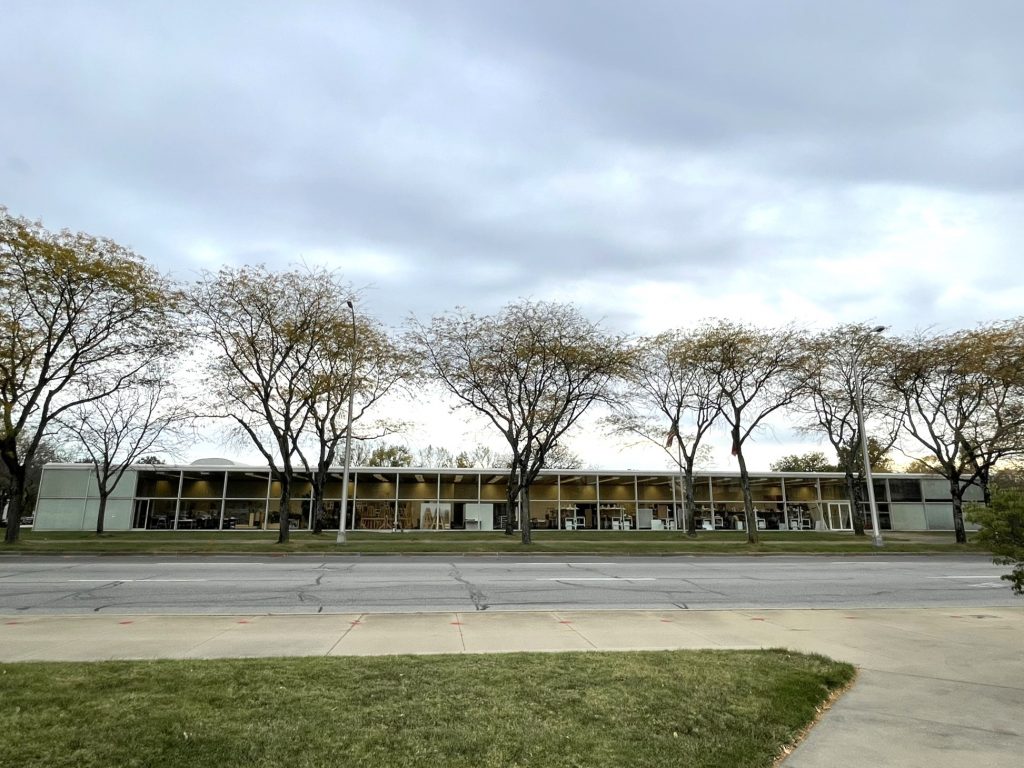
The Republic was designed for the same-named newspaper by Myron Goldsmith in 1971. The open concept reflects the “newspaper’s role as a central link in the information for the community.” Originally the printing presses could be see churning out the paper, as well. It is now home to the the J. Irwin Miller Architecture Program.
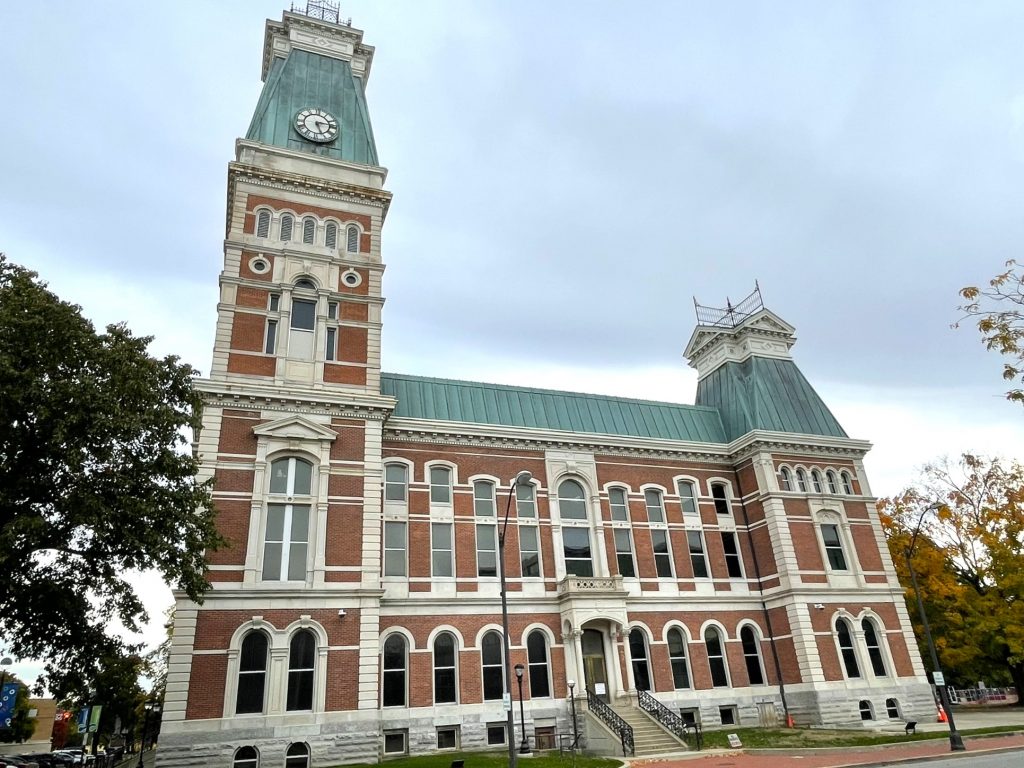
The Bartholomew County Courthouse is in the Second Empire-style, and was completed in 1874. It was designed by Isaac Hodgson, and most of the original interior spaces have been preserved (though we did not go inside to check).
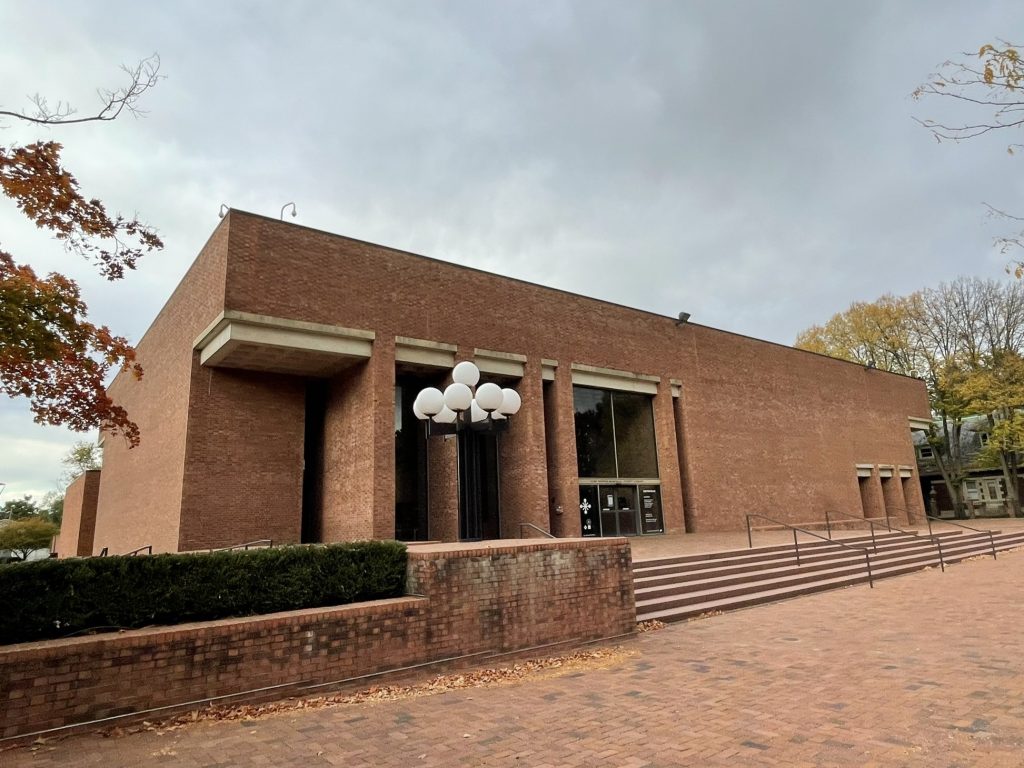
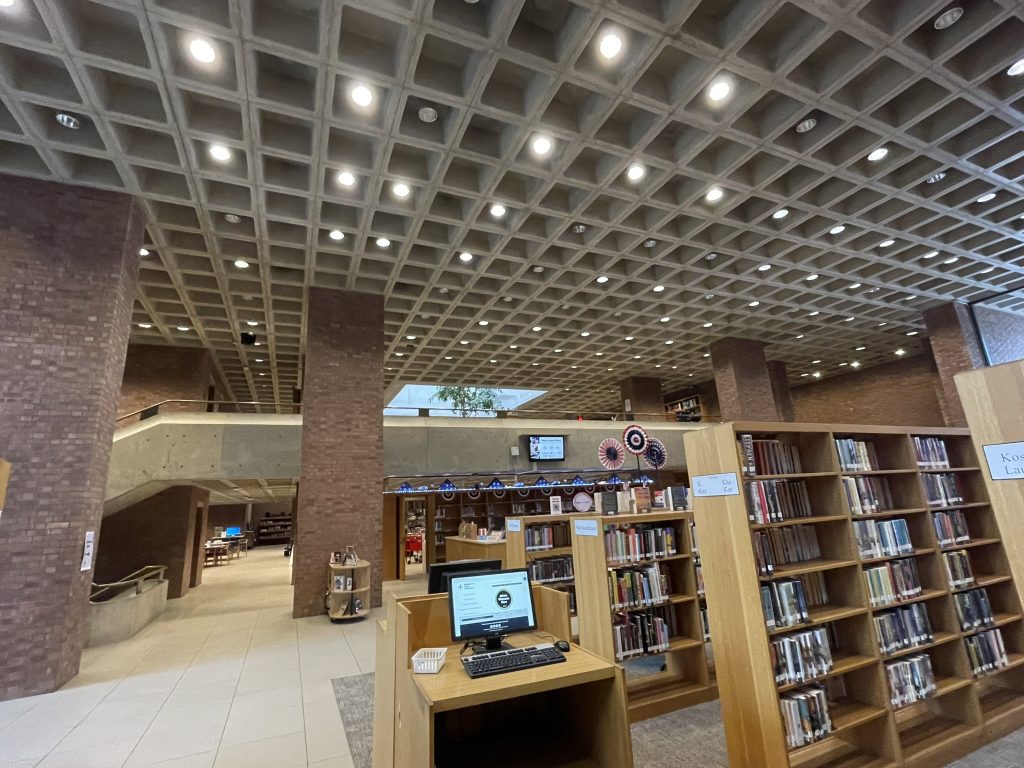
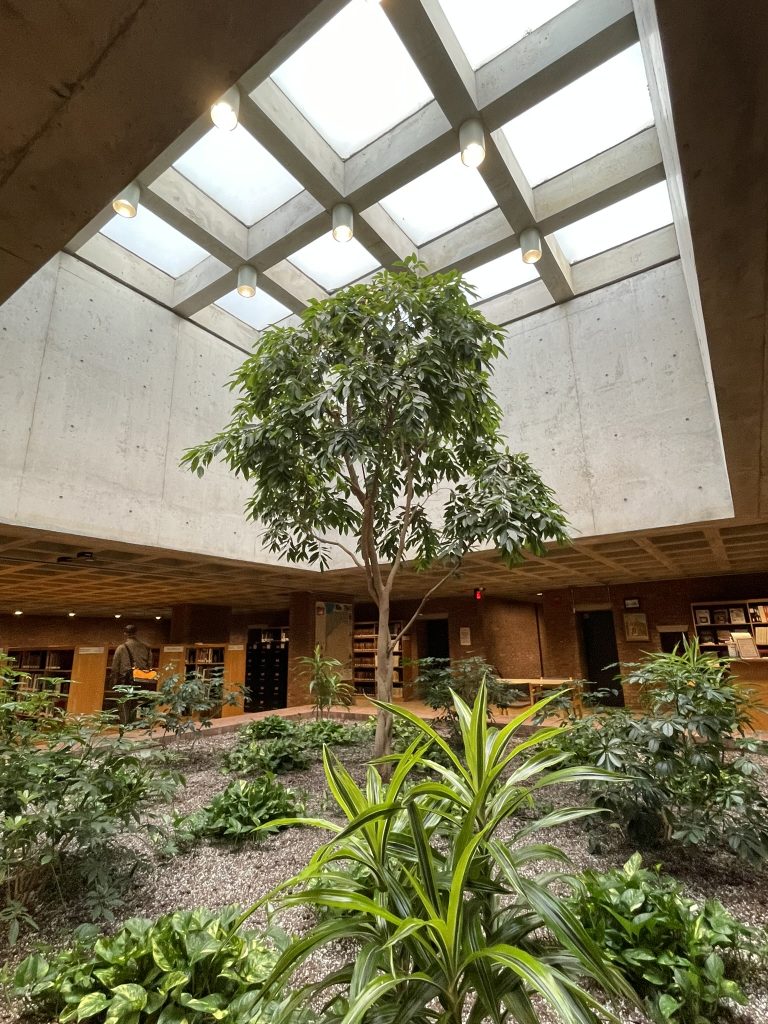
The Cleo Rogers Memorial Library was designed by I. M. Pei & Partners and dedicated in 1971. He also designed the Library Plaza in which the library sits.
Pei suggested sculptor Henry Moore to design a sculpture for the Library Plaza. The result was Large Arch, which was a gift to the city by — who else — the Millers. It’s 20 feet tall and frames the First Christian Church when you situate yourself in the right position.
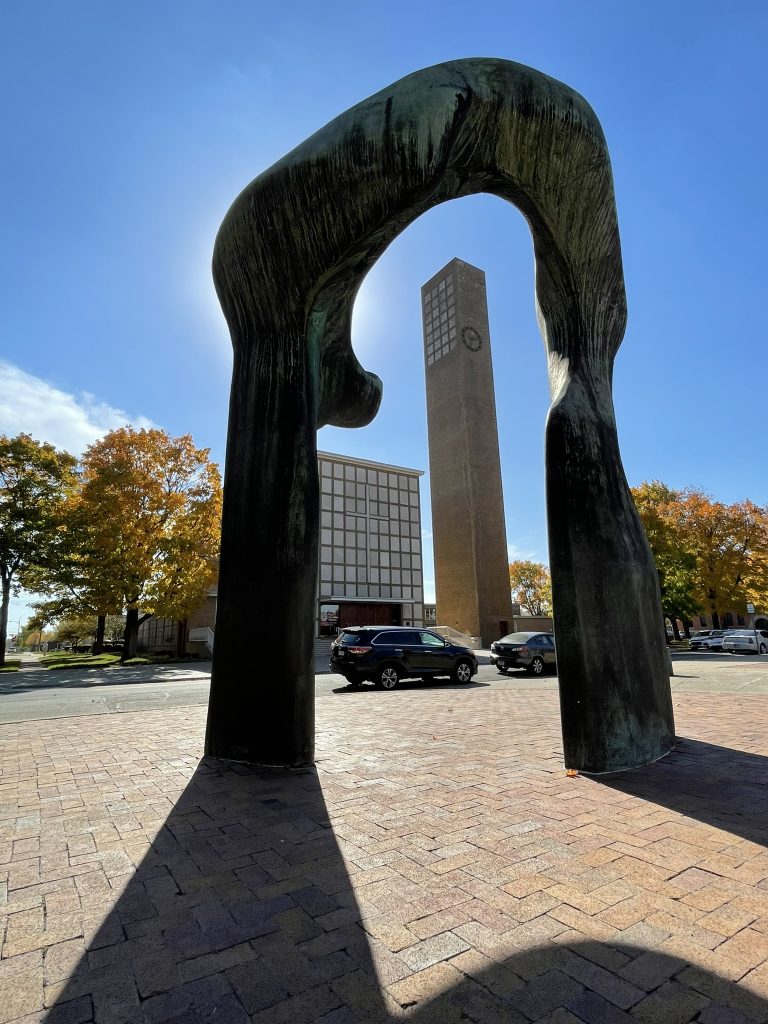
Works of Art and a Memorial
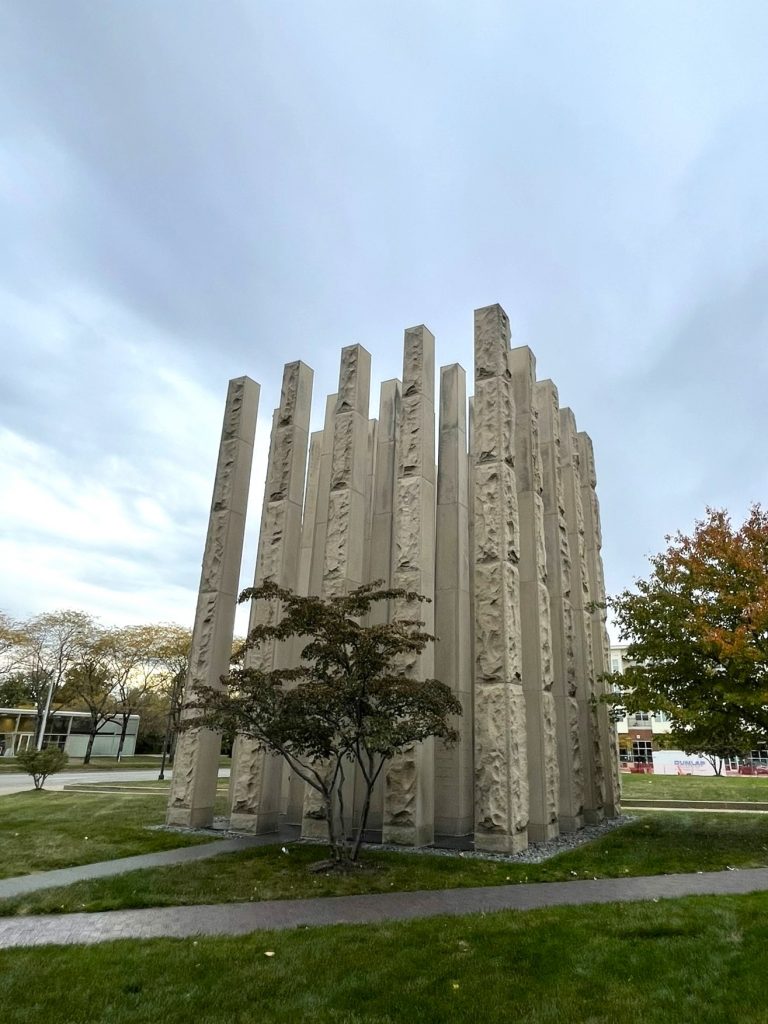
The Bartholomew County Memorial for Veterans, which honors the county’s veterans of 20th century wars, is comprised of 25 limestone pillars, each 40 feet high. The pillars are arranged in a 5×5 cube.
The names of those who gave their lives are engraved on the pillars, along with excerpts from selected correspondence. It’s very moving.
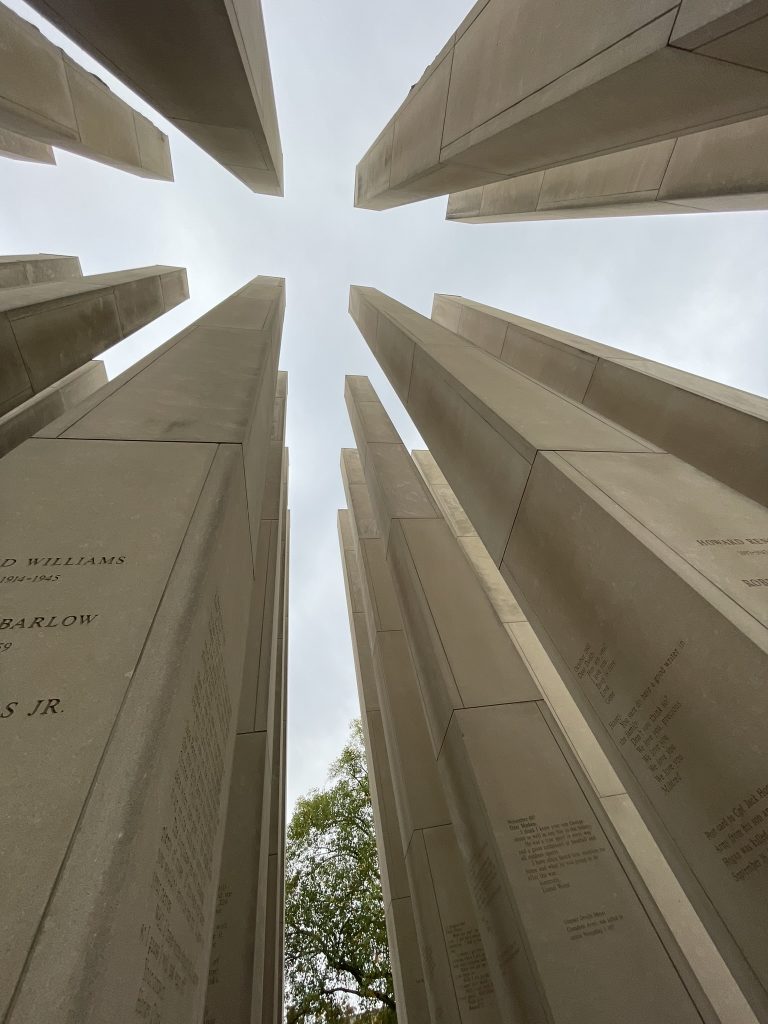
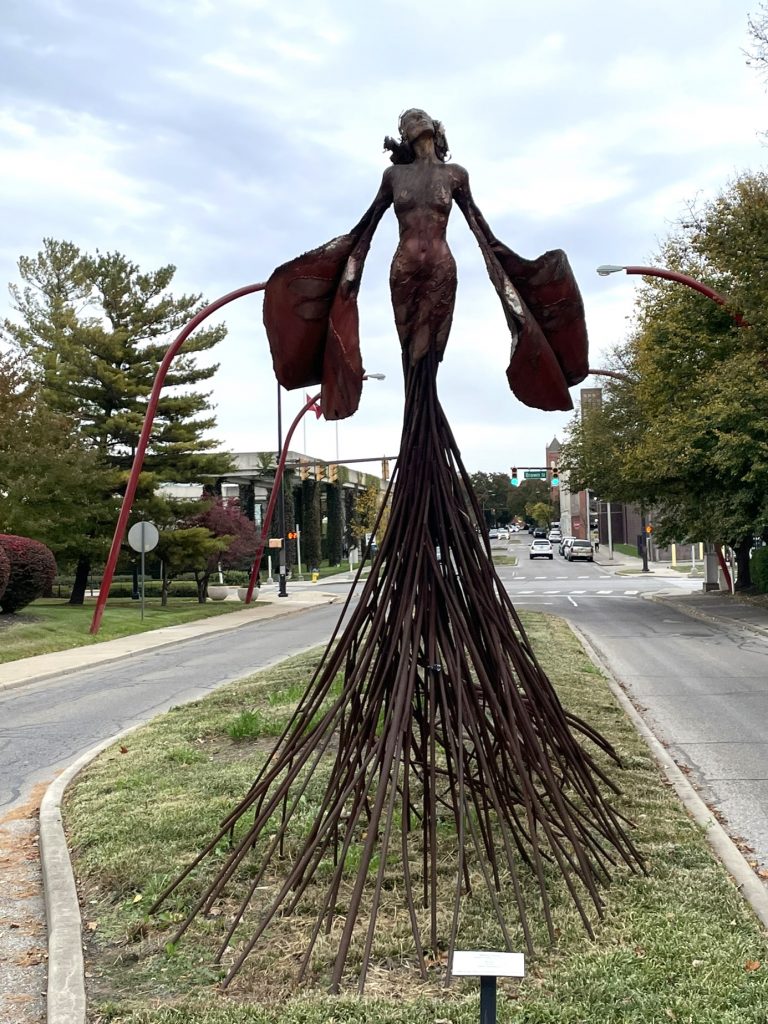
Eos, created by Dessa Kirk in 2006. Eos was the Greek goddess of dawn, and here she faces west, as if she is “rising with the sun from the eastern horizon.” Her arms extend into leaves, and though bare at the time of our visit, we saw pictures where the lower half is alive with climbing flowering plants.
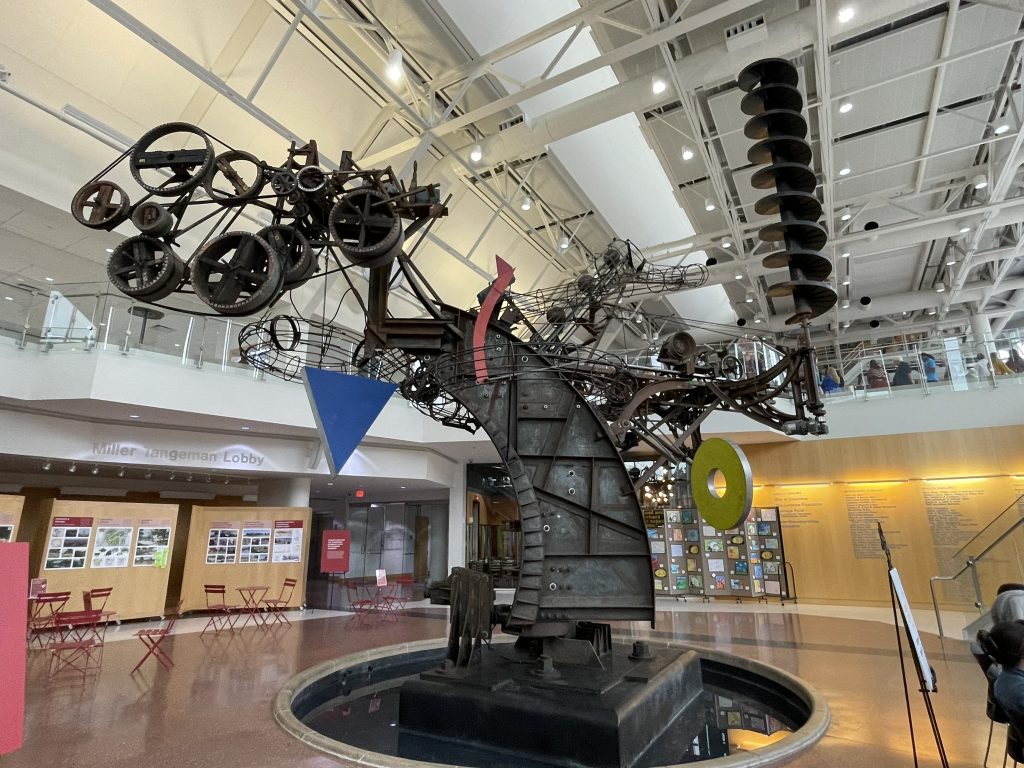
Chaos I, by Jean Tinguely, is a seven-ton, 30-foot-high kinetic sculpture. Though we did not see it move during our quick visit, it “cycles through a series of motions to simulate a day in a life, beginning slowly at first, adding movements and then winding down again. At the peak of its chaotic movements, steel balls roll and crash through a caged track, making a ruckus.” I suppose it goes without saying that this work was commissioned by The Millers (along with Mrs. Robert Tangeman) in 1971.
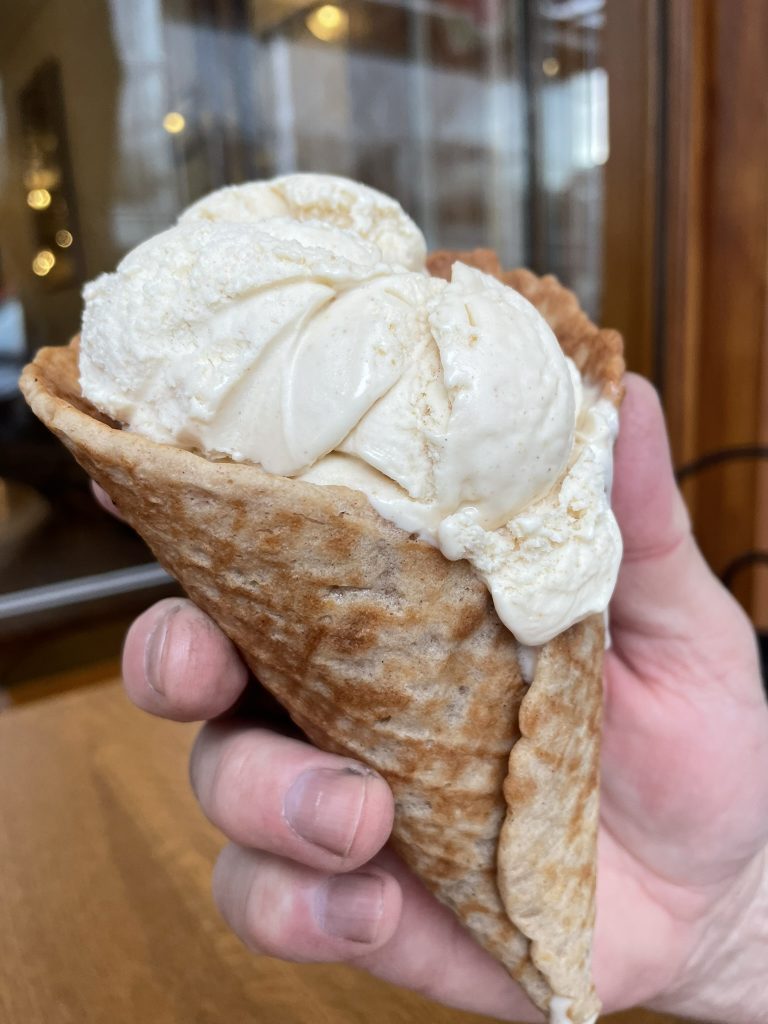
Perhaps the most impressive piece of art is this homemade ice cream served in a freshly made waffle come from Zaharakos. We got the peanut butter, and it was delicious. They trace their roots to 1900, and are set up like an old-time ice cream parlor. They also had a small museum of vintage soda fountains, which were gorgeous.




